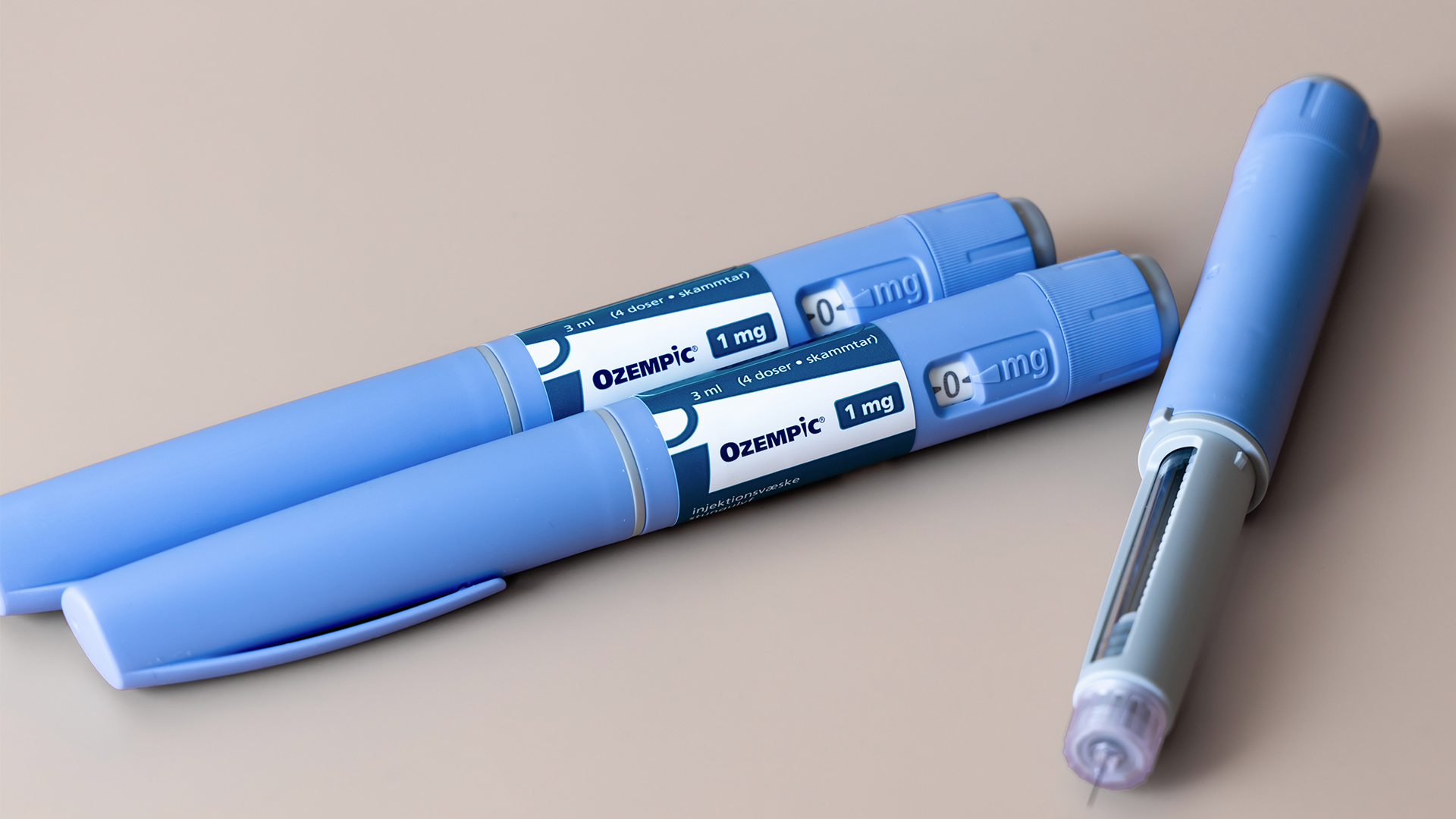Losing weight can be tricky, and we’re always looking at ways to speed up the process from dieting and exercising alone, which can be a long, slow process.
Statistics show that over 40% of Americans are classed as obese, and rather alarmingly, that figure appears to be increasing. Plus, most people with weight-related diabetes issues are currently using medication. Is it any wonder so many are looking for an easy “miracle” cure?
Recently, Ozempic has become an internet “buzzword” as those looking to lose weight flock to discover if this is the ‘miracle solution’ to their weight loss needs.
With names like Elon Musk and Kim Kardashian being linked with Ozempic, it’s no surprise that the new weight loss injection has caused a significant stir the world over.
So much so that there have been drug shortages due to the high demand of those wanting to try it out.
But what is Ozempic, and is the off-label use for weight loss worth the risks?
What Is Ozempic?
Ozempic is one of several brand names for Semaglutide, used for treating those with diabetes and other obesity-related medical issues under the name Wegovy.
It’s a weekly injection that helps adults with type 2 diabetes manage their blood sugar levels. Ozempic isn’t officially classed as a weight loss aid and is a diabetes medications.
However, Ozempic off-label is becoming increasingly popular as it’s been reported to help with modest weight loss as well as helping lower blood sugar levels and the risk of heart disease.
How does Ozempic work for weight loss?
The active ingredient in Ozempic is Semaglutide which activates the GLP-1 receptors in the body and boosts the release of insulin when there is a larger-than-usual intake of food.
GLP-1 is a naturally occurring hormone with numerous functions, including reducing glucagon release, which helps control blood glucose levels. It’s hardly surprising that this aid to diabetes is also being eyed up as a potential weight loss solution.
Essentially, GLP-1 acts as an appetite suppressant. The more GLP-1 your body makes, the lower your appetite will become. With a lower food intake, you can expect to drop some body weight, so long as you’re moving around enough to burn enough calories (though you will have fewer calories to burn if you’re consuming less).
Ozempic and other brands containing Semaglutide work by trying to correct your body’s behavior and how it responds to food intake.
There’s no denying that diet and exercise go a long way towards reducing our weight, but there is a point where it becomes quite complex—and a push in the right direction can go a long way.
Everyone’s “weight set point” is different, and when we reach this, shifting the pounds can be a struggle, even with the best will in the world. It’s our body’s natural reaction to trying to stave off hunger while, at the same time, trying to reduce our weight and enjoy a healthier lifestyle.
When we get hungry, our brain naturally sends out signals for us to eat more, which is where the struggle lies. This is where Ozempic comes in, by helping to suppress your appetite so that your brain doesn’t send out those emergency signals quite so quickly.
How to take Ozempic for weight loss
Ozempic comes as a prefilled pen which is used for a self-administered injection. Ozempic and other similar Semaglutide drugs are usually injected into the body, like those with diabetes inject insulin.
It usually comes as a prefilled pen, which can be self-administered once a week.
Here are some things you should know when using Ozempic as a weight-loss drug:
- A doctor will prescribe the dosage, which should be injected under the skin on your thigh, abdomen or upper arm.
- Whichever area you choose, you should insert the pen away from the site of your previous injection.
- If you have diabetes and you’re already injecting insulin, please make sure you don’t mix the drugs.
- You should never inject into a muscle or vein. If you’re unsure, check with your pharmacist or doctor.
- The area you choose to inject should be cleaned twice with an alcohol pad and allowed to dry, and the pen should be set to the correct dosage.
- After you inject, counting to six is an excellent idea to make you inject the full dose. If blood appears, press down on the area with some cotton wool for 30 seconds and always discard the needle safely afterward
- Please check the full instructions on the packaging or with your doctor before injecting yourself.
What are the side effects of Ozempic?
We know about the potential weight loss benefits of Ozempic, but as with any prescription drug, you should always weigh up the potential side effects and benefits. Some side effects are more common than others, but you should always address them head-on.
Overlooking the possible side effects could put your health at risk, which will go completely against the main aim of losing weight. Your doctor will be the best person to advise you of the most likely side effects based on your health records.
But, as a general rule of thumb, the most common health problems from Ozempic appear to be:
- Constipation
- Nausea and vomiting
- Abdominal pain
- Constipation
But let’s look at them all from the mild to the more severe.
Ozempic: The mild side effects
When used as a weight loss drug, Ozempic can cause mild side effects in some people, although these can develop into more severe symptoms on occasion. Here are some of the mild effects you should know about.
Abdominal pain
Digestive issues and pain is one of the most common side effects—and those using Ozempic may experience cramping and bloating. This is because the body reacts to its appetite suppressant functions. Issues like indigestion and acid reflux are also common side effects. Smaller, high-fiber meals can help reduce cramping or bloating, but if the issue persists, you should stop taking Ozempic.
A difference in the way things taste
Sometimes, Ozempic can alter the taste sensations in people, although the scientific reason for this is yet to be established. Food can taste slightly off or sour, so altering your diet might be a good idea if this issue flares up.
Dizziness
Dizziness can occur, especially when you first begin to take the medication. You may experience lightheadedness and a feeling that you’re about to faint. This may be down to high blood pressure, which Ozempic can cause and lead to dizziness.

This can happen because of dehydration or low blood sugar, but again, if symptoms persist, you should stop taking Ozempic.
Headaches
One of the most common symptoms is headache. Drinking plenty of water and using painkillers can help, but if your symptoms persist or become severe, it might be time to try an alternative weight-loss method.
Constipation and diarrhea
Ozempic can affect your bowel movements—causing either constipation or dreaded diarrhea. Flatulence is also a common side effect, as is burping. Adjusting your diet can tackle the issue, but you should seek advice from your health care provider or, as mentioned, stop taking Ozempic if the problems don’t stop.
Vomiting
Studies have shown that the most common side effect of Ozempic is nausea and vomiting because your body is trying to adjust to what the drug is doing to your system. The feeling can come and go, but it seems that it is being reported regularly by Ozempic users.

Some people find their system can adjust to the drug, and the feeling eventually disappears—but that isn’t the case for everyone. Keeping well hydrated can help, but if you’re unable to keep your food down, your body won’t get the nutrition it needs—which will lead to other problems. Again, if symptoms persist, talk to your doctor or stop taking the medication.
A lack of energy
Many users of Ozempic have found that they have a distinct lack of energy and are getting tired much earlier in the day than before. Fatigue is a common side effect of taking Ozempic, often causing dizziness and headaches.
Note: A severe lack of energy can happen because people combine Ozempic with a low-calorie eating plan. So, make sure you keep eating balanced, healthy meals.
Our 30-minute healthy meals guide will help you stay on track while going for your weight loss goals.
Allergic reactions
Allergies are commonplace when taking prescription-based drugs, and Ozempic is no exception. Often there can be redness on the skin near the injection site, and sometimes, there can be some skin irritation. Keep your eyes peeled, and if you notice any allergic reactions, contact your doctor right away.
Increased heart rate
Fluctuating heart rates can be a symptom of Ozempic. These can be minor changes in rhythm or more severe.
If you experience any of these issues, speak to your doctor immediately to see if you can alleviate the problem or whether trying an alternative weight loss method would be better.
Ozempic: The severe side effects
Ozempic users have reported some serious side effects. If you feel that you might be at risk of some of the more serious side effects of Ozempic, you need to stop taking it and speak to your doctor.
Kidney issues
Kidney problems can get worse by other side effects caused by Ozempic, such as vomiting and diarrhea that cause a loss of fluid. Keeping topped up with water is a good idea and may help the issue, but if the problems persist, you know what to do: stop taking Ozempic immediately.
Pancreatitis
There have been reports of Pancreatitis (swelling of the pancreas), which can not only be uncomfortable but cause digestive issues or a severe lack of energy. This happens because the pancreas releases insulin, which is essential for digestion.
Gallbladder disease
Swelling and gallbladder pain are among the most severe potential side effects of Ozempic and other Semaglutide-based drugs. +

Please be aware that the drug may increase your risk of gallbladder disease, including swelling and gallstones.
Thyroid cancer
The European Medicines Agency (EMA) has raised concerns about a possible risk of medullary thyroid cancer in people using glucagon-like peptide-1 (GLP-1) receptor agonists, including Ozempic. More research is needed, but enough evidence suggests a possible link between Ozempic and thyroid tumors.
Low blood sugar
Evidence suggests that Ozempic and other Semaglutide drugs may cause hypoglycemia, especially if you’re already using medication for diabetes. Maintaining a healthy diet and using the drug could be a major factor.
Red eyes
Damaged blood vessels in the eyes are a reasonably common symptom of using Ozempic. This is because it lowers blood sugar levels and increases insulin in the system, which changes blood vessels in the eye. If this persists, it can cause damage to the retina.
Who should not use Ozempic for weight loss?
Ozempic is not FDA-approved for weight loss; it’s for the treatment of obesity-related diabetes to reduce body mass index to reduce those at high risk of heart attack and stroke in those with known heart disease.
You should only use it when prescribed by a doctor or other medical professional. Start using Ozempic for weight loss after a lengthy consultation with a doctor to ensure it’s right for you and evaluate your risk of complications.
If you have other health issues, looking for an alternative weight loss method may be best. Remember, you will likely be on medication for some time for it to work. So, if you’re looking for a fast-track solution for weight loss, this may not be for you.
Does Ozempic work?
Mainly, Ozempic works as an appetite suppressant. Studies show that, if used in a high enough dose (2.4 milligrams of Semaglutide), it can be effective at helping those with obesity.
Remember: It’s only available to treat obesity-related diabetes after a thorough consultation with a medical professional.
There are also several potential side effects, so weighing the risks is very important. Also, it can be extremely easy to put the weight back on once you stop taking Ozempic unless you’re very strict with your food. Yes, Ozempic can treat diabetes by reducing weight, but the chances are this is another celebrity-hyped fad.
It’s certainly not a method of losing significant weight—and overall, we wouldn’t recommend it as a sustainable solution.
For insider tips and advice on dropping pounds the healthy way, read weight loss supplements v Diet and Exercise: which is Better?




